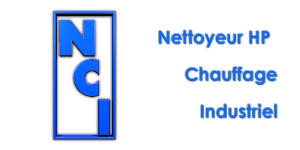The Ultimate Guide to Understanding Information Portals in the Digital Age
Introduction to Information Portals
An information portal serves as a centralized hub for accessing diverse data, resources, and services. In today’s fast-paced world, these platforms act as digital resource hubs, consolidating everything from academic research to real-time analytics. Whether you’re a student, professional, or researcher, understanding how these online knowledge centers function is crucial for leveraging their full potential. From streamlining workflows to fostering innovation, information portals are reshaping how we interact with information.
What Makes an Information Portal Effective?
A successful information portal combines usability, reliability, and scalability. It must offer seamless data access platform capabilities while ensuring secure, intuitive navigation. For instance, platforms like https://highway24.net/ demonstrate how integrating advanced search algorithms and personalized dashboards can transform user engagement. These features not only enhance efficiency but also position the portal as a go-to interactive learning tool for users seeking dynamic content.
Key Features of a Modern Information Portal
- Centralized data access platform for real-time information retrieval
- Personalized user interfaces tailored to individual needs
- Integration with external databases and APIs for expanded digital resource hub functionality
How Information Portals Enhance User Experience
By acting as interactive learning tools, modern portals reduce the friction of navigating fragmented sources. Users benefit from curated content, collaborative features, and adaptive interfaces that evolve with their preferences. Whether accessing academic journals or industry reports, these platforms streamline the journey from inquiry to insight, making them indispensable online knowledge centers.
The Role of Technology in Information Portals
Advancements in AI and cloud computing have revolutionized information portals. Machine learning algorithms now enable predictive analytics, while cloud infrastructure ensures scalability and reliability. These innovations allow portals to function as robust digital resource hubs, supporting everything from remote collaboration to global data sharing.
Common Use Cases for Information Portals
- Educational institutions utilizing portals as interactive learning tools for students
- Businesses leveraging data access platforms for market intelligence
- Governments deploying portals as online knowledge centers for public services
Security and Privacy in Information Portals
As information portals handle sensitive data, robust security measures are essential. Encryption protocols, multi-factor authentication, and compliance with regulations like GDPR safeguard user privacy. Ensuring these protections reinforces trust in the portal’s role as a reliable digital resource hub.
Trends Shaping the Future of Information Portals
The rise of AI-driven personalization and blockchain-based verification is redefining information portals. These trends emphasize transparency and user autonomy, positioning portals as more than just data access platforms—they’re evolving into intelligent ecosystems that anticipate user needs.
Challenges in Developing an Information Portal
Crafting an effective information portal requires balancing innovation with practicality. Challenges include managing vast datasets, ensuring cross-platform compatibility, and maintaining user engagement. Overcoming these hurdles demands strategic planning and continuous adaptation to emerging technologies.
Best Practices for Designing an Information Portal
- Prioritize user-centric design to maximize accessibility
- Incorporate feedback loops for iterative improvements
- Ensure scalability to accommodate growing digital resource hub demands
Posted in: Non classé
Leave a Comment (0) →